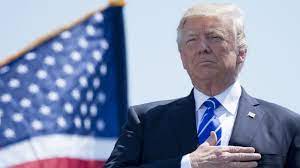It was a sunny afternoon when I welcomed my students to our classroom for another session of our weekly political discussion group. This time, the focus was the 45th President of the United States, Donald J. Trump. His presidency had been a whirlwind of unprecedented moments, controversies, and political divisiveness. The goal of this discussion was not to minimize or amplify any political bias, but to provide an open space for real conversation and understanding among all participants.
As I introduced the topic, I could see the tension rising in their faces. It is almost inevitable that the mention of Donald Trump evokes strong reactions from people across the political spectrum. I decided to begin with a simple question: “What are your initial thoughts about his presidency?”
Jenny, one of my more vocal students, did not hesitate to share her disapproval with some of Trump’s policies and rhetoric. She expressed her anguish over the issues such as family separation at the border, his handling of the COVID-19 pandemic, and his persistent twitter rants that sometimes crossed lines into offense.
On the other hand, Michael defended certain aspects of Trump’s presidency. He believed that some initiatives like lowering taxes and deregulation created opportunities for economic growth and helped small businesses prosper. Furthermore, he praised Trump’s attempts at negotiating peace agreements in the Middle East, a remarkable achievement worth recognizing.
The conversation turned intense as Jenny and Michael exchanged heated remarks over immigration reforms and climate change policies – two divisive policy areas during Trump’s tenure. Both voiced their concerns passionately; however, they also sought to understand each other’s perspectives.
To dial down the temperature of the debate, I encouraged reflection on areas where they agreed or felt neutral about President Trump’s actions. Surprisingly enough, a common ground emerged when discussing criminal justice reform – specifically, the First Step Act signed into law by President Trump in 2018, aimed at reducing recidivism and improving prison conditions. Jenny and Michael both recognized this as a positive legislative accomplishment demonstrating Trump’s willingness to work on bipartisan issues.
As our session drew to a close, we had all learned something valuable that day – the importance of authentic dialogue and active listening when discussing polarizing topics. Everybody agreed that although they may not see eye-to-eye on everything related to Donald Trump’s presidency, engaging in open and respectful discussions is vital for societal progress.
The experience reminded me of the power of education in breaking barriers and fostering understanding among my students. Although we may not have solved the world’s problems that day, we certainly paved the way for more empathic conversations in the future – an essential element in healing the wounds of political division.





